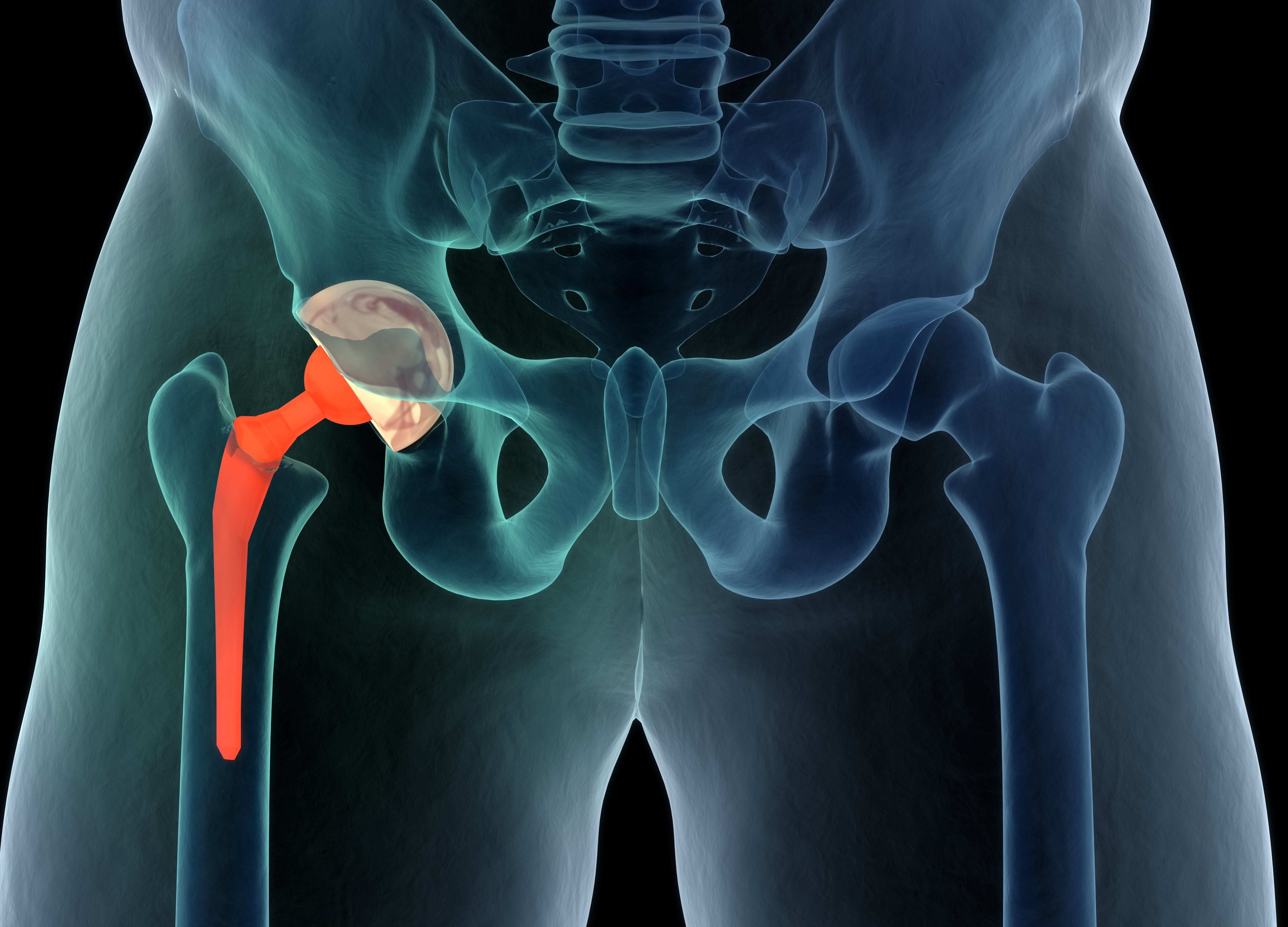Article
How long does a hip replacement last?
Total hip replacements are one of the most common and effective surgeries for women and men with osteoarthritis. The surgery can work miracles in patients, but the technology behind the surgery is not indestructible. At what point does failure set in?
Hip replacement (©AdobeStock_Anatomy Insider)

Total hip replacements are one of the most common and effective surgeries for women and men with osteoarthritis. The surgery can work miracles in patients, but the technology behind the surgery is not indestructible. All hip replacements will eventually fail. Infection, fracture or general wear and tear may eventually set in or occur rendering the procedure ineffective. But after how long? At what point does failure set in? This is what researchers writing in The Lancet last week asked.
The article is a review based on a combination of published studies in Medline and Embase. The studies were published from the time of the first hip replacement in the 1940s to September 2017. The review also includes data from registries kept in Australia and Finland. Researchers found that of 13, 212 total hip replacements recorded in Medline and Embase, 77.6% lasted 25 years. Of, 215,676 joint replacements recorded in national registries, 57.9% lasted 25 years.
“Assuming that estimates from national registries are less likely to be biased, patients and surgeons can expect a hip replacement to last 25 years in around 58% of patients,” wrote researchers who were led by Jonathan T. Evans, M.D., Ph.D., of the University of Bristol in the United Kingdom. “To counsel patients accurately and appropriately, benchmark treatment strategies, plan health-care provision, and for medicolegal purposes, it is important to know how long a total hip replacement might last.”
This is especially important today since people are living longer, he wrote.
In the U.K., where this study was conducted, the average patient who had a total hip replacement was 69.8 years and female; or, 67.6 years and male. Most (90%) hip replacements are done as a result of osteoarthritis and most (60%) are done in females.
Failure of the procedure in this particular study was defined as the onset of long-term moderate-to-severe pain, which was the primary endpoint in this study. Beswick, et al., writing in BMJ Open in 2012 wrote that this doesn’t occur often. In the Beswick, et al. study, only 7-23% of patients experienced pain that was severe enough to render the surgery a failure.
The review by Evans, et al. didn’t examine the frequency of revision surgeries, but generally, the younger the patient at initial surgery, the higher the chance of having revision surgery simply due to the fact that people are outliving the lifespan of artificial hip joints.
FUNDING
The study was funded by the National Institute for Health Research, National Joint Registry for England, Wales, Northern Ireland and Isle of Man, and The Royal College of Surgeons of England.
REFERENCE
Jonathan T Evans, Jonathan P Evans, Robert W Walker, Ashley W Blom, Michael R Whitehouse, Adrian Sayers. "How long does a hip replacement last? A systematic review and meta-analysis of case series and national registry reports with more than 15 years of follow-up," The Lancet. Feb. 16, 2019. DOI:https://doi.org/10.1016/S0140-6736(18)31665-9




